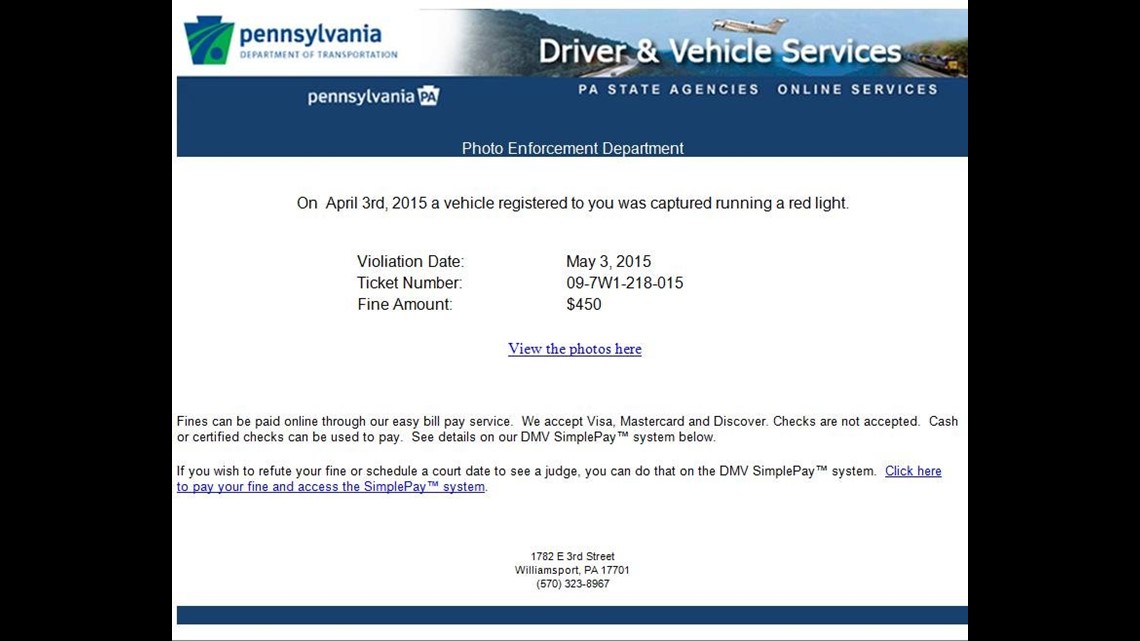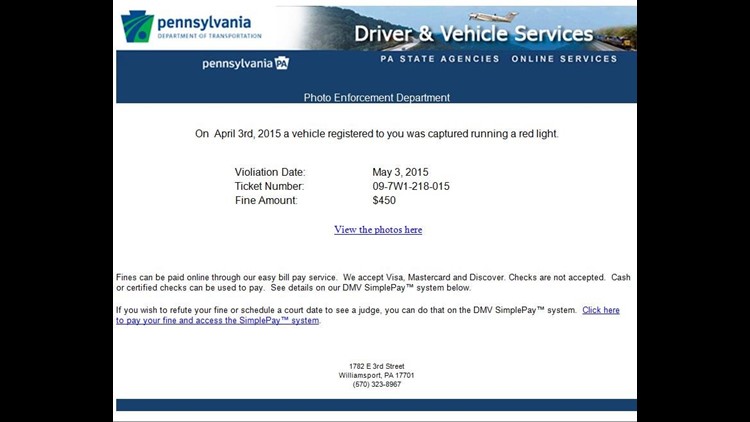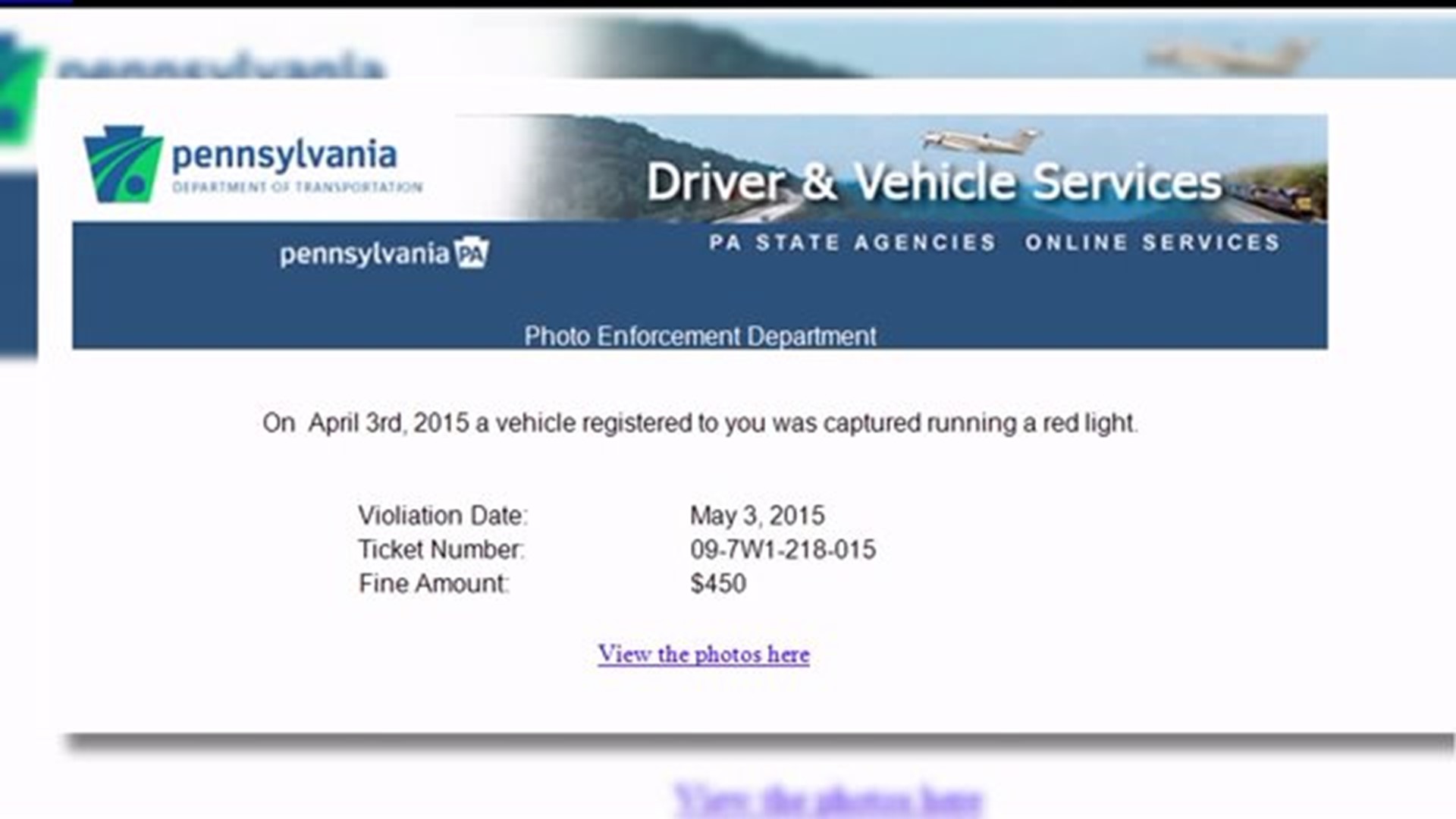The Pennsylvania State Police are warning the public of a fraudulent email claiming to originate from the Pennsylvania Department of Motor Vehicles (PennDOT).
The subject line of the email indicates “Action Required - Fine for Traffic Violations.” The body of the email further states that “a vehicle registered to you was captured running a red light” along with a violation date, ticket number, and a specified fine amount.
There were also various links to click on to view photos, pay the fine, or for more information regarding the email security service. The links redirect the user to other websites not affiliated with PennDOT. DO NOT CLICK ANY OF THE LINKS!
Police believe this is a scam. The message not only has “violation” spelled incorrectly, but also lists two different violation dates. Also, citations or traffic tickets issued in Pennsylvania are not paid directly to PennDOT.
"Always be leery especially with emails looking for credit card information, your social security information, your birth date, and other important pieces of information. No legitimate company or government agency is going to ask for your personal information via email," said State Police Trooper Adam Reed.
"It is not from us. PennDOT does not collect fees as this email suggests that we do, and in general people should be very cautious about emails that ask for immediate payment," said PennDOT Spokesperson Rich Kirkpatrick.


State Police recommendations:
• Do not reply to these types of emails and delete the message if and when received. If you receive an email asking for privileged information, you should delete it immediately.
• Never give out privileged information. Oftentimes "Phishing" emails will use legitimate 'From:' email addresses, well-known logos, or links to reputable businesses in the message. Some may ask for personal information such as your name, address, date of birth, Social Security number (SSN) passwords etc. You should never reply to inquiries asking for privileged information. If you do receive these types of requests through email or via verbal request, please do not reply to the request.
• Don’t open anything from an unknown source. If the sender’s name is not recognized, it should not be opened. If the name is recognized, but the contents appear questionable, contact that person to verify they sent the email. Always remember not to click on links or attachments contained in e-mails from un-trusted or unknown sources.
• Remember that it always pays to be careful. If it looks suspicious or if there is a doubt about its legitimacy in any way, delete the message and do not reply or ask your IT department for assistance.
Always remember the following cyber security tips when dealing with content and links in suspicious e-mails:
• NEVER open a link or attachment when the sender is not known.
• NEVER click on an e-mail link that only has an IP address.
• NEVER run a program or allow a plug-in when the source is unknown or un-trusted




